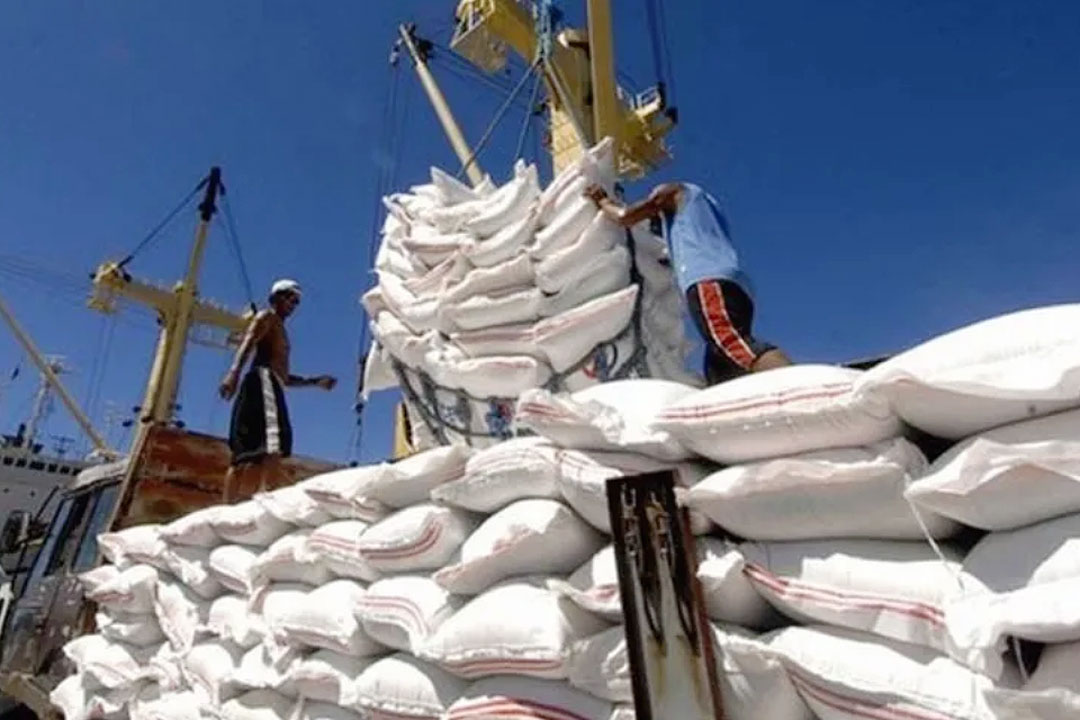
THE GOVERNMENT should import food only as a last resort when it seeks to address high food prices, Senator Ana Theresia N. Hontiveros-Baraquel said.
Speaking at a virtual forum, Ms. Hontiveros-Baraquel said on Monday that imports “should be the last option. There must be other policy instruments and programs that can help lower food inflation.”
“We need to prioritize our farmers and fishermen,” she added.
“When we allow too many imports, farmgate prices drop. How is this sustainable? How will our farmers sustain domestic supply? We need to implement targets in food production. If there are targets, the government will know where to prioritize investment,” she said.
In the third quarter of 2021, trade in agricultural goods was in deficit by $2.4 billion, with imports of farm goods accounting for 13.5% of overall imports, according to the Philippine Statistics Authority.
“We must consider agriculture as a growth driver for the economy and the whole of society. It must be a main engine of our economy post-pandemic and post-recession. We must lift up the whole sector,” she added.
With regard to the Regional Comprehensive Economic Partnership (RCEP), she said the Philippines must be ready before it joins the regional trade deal.
“We don’t say no to competition. But it should be fair competition. This cannot be denied by countries with bigger economies. We must have the right support, policy protection and promotive programs from our side. We must be equipped before we open up to competition,” Ms. Hontiveros-Baraquel said.
The RCEP was signed by President Rodrigo R. Duterte in September and is now awaiting ratification in the Senate.
RCEP started coming into force on Jan. 1 in Brunei, Cambodia, Laos, Singapore, Thailand, Vietnam, Australia, China, Japan, South Korea, and New Zealand.
The Senate has until Feb. 4 to ratify the RCEP deal. As a treaty, it cannot be amended and can only be acceded to, rejected, or deferred.
Farm and fishing organizations urged the Senate to defer, if not reject, RCEP claiming that the agricultural sector is not yet ready for the expected disruption.
“Let’s give us time to prepare. If not, the rich will get richer, the poor will get poorer. The agriculture sector is always forgotten. You will hear this now from the people because no one is listening,” Former Agriculture and Trade Undersecretary Ernesto M. Ordoñez said in a separate virtual forum.
“No meetings have been called, there is incomplete information and no consultation,” he added.
The farmers and fishermen estimated that the Philippines is five to 10 years away from being ready for the effects of the free trade agreement.
“Have all the threats been identified? Assuming we have identified the transition measures, are the measures in place and is the budget sufficient? Is there necessary assistance available? So when we enter RCEP, we have a fighting chance to be competitive,” according to Leonardo Q. Montemayor, president of the Federation of Free Farmers (FFF).
Labor Education and Research Network Senior Researcher Rolly Czar Joseph M. Castillo said according to studies conducted by his organization, the industries most negatively affected will be sugar, wool, wheat, plant-based fibers, electrical equipment, ferrous metals, and metal products.
“We import about P600 billion worth of agricultural products every year. Every 1% reduction in tariffs means a tariff revenue loss of P6 billion,” FFF National Manager Raul Q. Montemayor added. — Luisa Maria Jacinta C. Jocson



